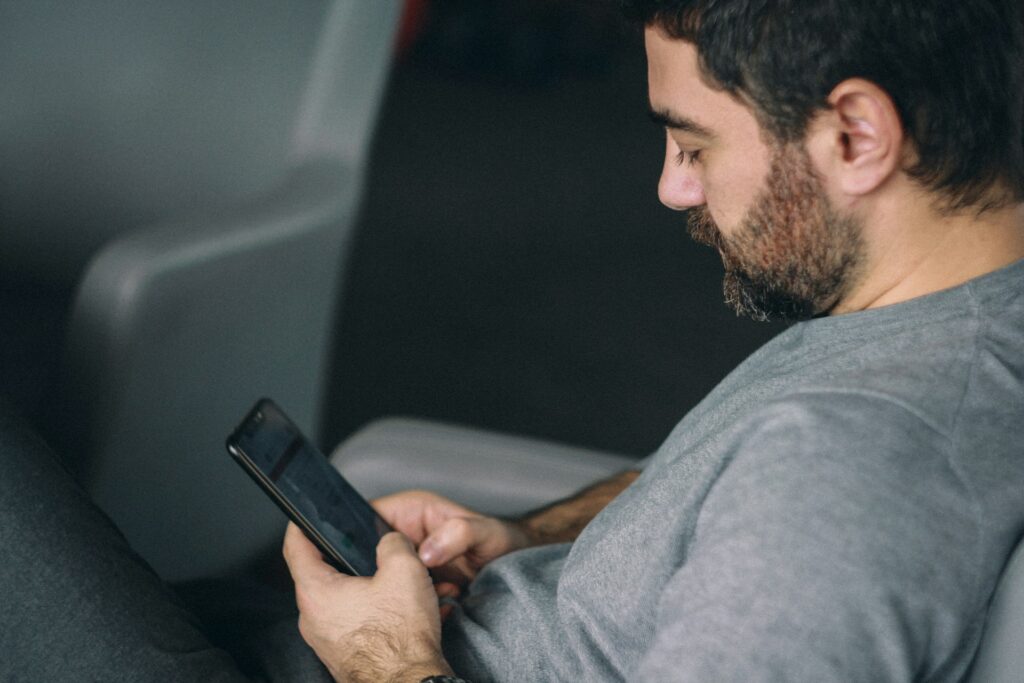When depression hits, friendships can start to feel distant—not because you don’t care, but because everything feels heavier, harder, and more out of reach.
 Source: Unsplash
Source: Unsplash The thought of replying to a message or showing up to plans can feel overwhelming, even when you genuinely miss the people you love. If this sounds familiar, you’re not alone. Here are some simple ways to help maintain your friendships during a depressive patch, even when energy and motivation are low.
1. Be honest (even if it’s brief).
 Source: Unsplash
Source: Unsplash You don’t have to go into detail or explain everything. Even just saying, “I’m having a rough time right now, but I care about you” can keep the door open without draining you emotionally. Most friends don’t expect a full breakdown of what’s happening. They just want to know you haven’t disappeared for no reason. A little honesty goes a long way in maintaining connection.
2. Use low-effort check-ins.

If replying feels hard, try short, low-pressure messages. Even sending a heart emoji, a quick “thinking of you,” or a photo you came across can remind someone you’re still there—without needing to hold a conversation. It helps you stay present in the friendship without the pressure to be bubbly or responsive when you’re not in that headspace. Your friends will likely appreciate any small sign of life more than you realise.
3. Let them know it’s not about them.

Depression often makes people pull away, but friends might interpret that as disinterest or rejection. A simple “I’ve gone quiet, but it’s not because of anything you did” can protect your relationships from unnecessary hurt. You don’t owe anyone constant access, but that little reassurance helps friends understand what’s going on and keeps trust intact while you navigate things.
4. Say yes to small things if you can.
 Source: Unsplash
Source: Unsplash When everything feels too big, start small. You might not manage a full day out, but replying to one text, joining a short phone call, or sending a meme could be manageable. It’s not about forcing social time—it’s about finding manageable ways to stay connected that don’t leave you more drained than before. Even tiny interactions count when you’re struggling.
5. Let friends come to you (if you’re okay with it).

If you can’t face leaving the house or initiating plans, it’s okay to say, “You’re welcome to come by if you want—I might not have much energy, but I’d still like to see you.” Some friends will appreciate the honesty and be happy just to sit with you, no expectations involved. It can take the pressure off while still keeping the friendship alive in a gentle way.
6. Don’t punish yourself for needing space.

Taking a step back doesn’t mean you’re a bad friend. Depression alters your ability to engage, and that’s not your fault. Sometimes you need to turn inward to survive, and that’s okay. The guilt of being “absent” can pile on, but it helps to remember that real friendships aren’t built on perfect availability. They’re built on mutual care, which doesn’t vanish in a quiet spell.
7. Ask for support in specific ways.

If a friend offers to help, but you don’t know what to say, try suggesting something simple and concrete. “Would you mind checking in midweek?” or “Could you send something funny now and then?” gives them direction. People often want to help, but aren’t sure how. Giving them small, doable ways to support you helps them show up without feeling helpless—and helps you feel less alone.
8. Accept that friendships might look different for a while.
 Source: Unsplash
Source: Unsplash When your depression is bad, you might not be as chatty, spontaneous, or present as usual. That doesn’t mean your friendships are failing—it just means they’re in a quieter season. Good friends understand that closeness can ebb and flow. If you’ve built solid connections, they won’t vanish just because you’ve had to go quiet for a bit.
9. Don’t wait to feel “better” to reach out.
 Source: Unsplash
Source: Unsplash It’s tempting to hold off on replying or seeing friends until you’re more like yourself again. But the truth is, that moment might take longer than you hoped—and your friends probably don’t need the “best” version of you to show up. Reaching out while you’re still in it, even messily, is better than staying in isolation until you feel fixed. You don’t have to be okay to be loved.
10. Share things that help you feel connected.
 Source: Unsplash
Source: Unsplash If talking feels hard, maybe watching a show together, playing an online game, or even sending a playlist could help maintain a sense of closeness. Connection doesn’t always need deep conversation. Sometimes the best thing a friend can do is just sit with you in silence, or laugh with you over something silly. Look for the lighter ways to stay present without pressure.
11. Remember: your friendships aren’t one-sided.
 Source: Unsplash
Source: Unsplash Depression can make you feel like a burden or like you’ve got nothing to offer. However, chances are, you’ve shown up for your friends in ways they remember, even if you’ve forgotten. Friendship isn’t about constantly proving your worth. It’s about trust, consistency, and care over time. You matter even when you’re quiet. You’re allowed to receive support too.
12. Let go of perfectionism in your replies.

Waiting to “say the right thing” can lead to weeks of silence. Of course, most friends don’t need eloquence—they just want to hear from you. A short, honest message means more than a perfectly worded one that never comes. Drop the idea that you have to sound upbeat or explain everything. A quick “Sorry I’ve been quiet—it’s been tough, but I’m still here” is more than enough.
13. Keep believing the connection is still there.

Even when you can’t feel it, your friendships are still real. Depression has a way of making everything feel distant or lost, but that doesn’t mean the bond is gone. You might feel out of sync now, but with time, small effort, and some kindness toward yourself, those friendships can stretch through the silence and still be waiting on the other side.




